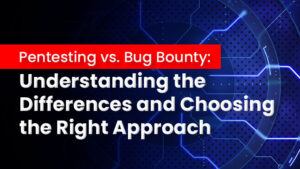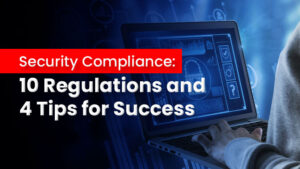Introduction
The metaverse has rapidly gained popularity among seasoned business and information technology professionals and casual observers. Blockchain-related scams and threats against financial institutions will increase. The 3D environment of the metaverse will make it simpler to use engineering methods more successfully. Multiple technologies must be used at once in the metaverse. Cryptocurrencies and NFTs can be used to build a distinct economy in this universe, where augmented reality, cloud technologies, IoT, and artificial intelligence must all work together to function. This article will cover the Future of Cybersecurity in a Metaverse Era.
If you are interested in beginning your career in Cybersecurity or a related field, IPSpecialist is considered the ideal place to start your journey. We offer online courses, study guides, e-books, practice questions, exam-cram notes, and career guidance. Check out our Cybersecurity Courses now!
What is Metaverse
People will collaborate using a digital facsimile or avatar of themselves in corporate meetings, online communities, and gaming, among other contexts. Users use avatars to engage with one another, represent themselves, and virtually grow the metaverse community. Users can also leisurely and aimlessly wander the metaverse using a VR headset and controllers.
Metaverse Risks
If extensive security measures are not implemented, many experts are worried that identity theft may become even simpler in the metaverse. In the real world, identity theft has already become a multibillion-dollar industry.
A form of harmful software called ransomware has the power to encrypt your files and prevent you or anyone else from accessing them. After that, it will prompt users to pay a specified sum of money to restore data, thus the label “ransomware.”
-
Social Engineering Attacks
The art of mentally tricking someone into disclosing private information is known as social engineering. Given how much personal information will be stored in the metaverse, it may turn out to be a goldmine for cybercriminals wanting to sell personal data on the Dark Web.
What Makes Metaverse So Important
Looking into the metaverse’s new possibilities can help you better understand why it has grown so popular. The following are the primary causes of businesses from all industries, not just technology companies, to be so enthusiastic:
The internet is entering a new era. Recall the controversy and hysteria surrounding the name “internet” in the 1990s. Everything we know about politics, management, and business practices was expected to alter, and the metaverse offers a similar metamorphosis in this case.
Business and working models are rapidly evolving. With the advent of the metaverse, it will enjoy considerably greater acceptance. Virtual reality will make it possible to establish places like virtual workplaces and improve the management of these procedures.
Investment opportunities particular to the metaverse are developing. We anticipated that NFTs and digital currencies would develop an online economy, but we can now say that the metaverse will strengthen this economy. A crypto-based economy will open up trillion-dollar chances for brands and content creators to build their virtual worlds.

Metaverse from a Cyber Security Perspective
Information security professionals can foresee some security risks even though the technology is still in its early stages. There are indications that fraud techniques like phishing will stay a concern in the online world. Threat actors may regard the metaverse as a window of opportunity, leading to the following scenarios.
- The Metaverse economy will be based on NFTs, increasing NFT fraud more likely.
- Virtual reality headsets will be used more frequently, opening up new opportunities for malware and data breaches.
- Scams and threats against financial institutions related to blockchain will rise.
- The metaverse’s 3D environment will make it easier to employ engineering techniques more successfully.
How will the Metaverse Affect Cybersecurity in 2022?
Rising NFT scams have been a sign of a frenzy of cybercriminal activity ever since the idea of the metaverse made headlines. Since social engineering techniques are used in many scams, it is logical to assume that social engineering attacks will not disappear anytime soon. As the metaverse develops, there may even be an increase in attacks.
Given that the metaverse will eventually hold a sizable amount of sensitive data, an increase in hacking attempts must be expected. Along with that, it has an apparent effect on data privacy. All users could suffer if there are frequent hacks and data thefts if the situation is left open. That brings with it the immediate risk of fraud and virus intrusions.
The fact that the metaverse is based on blockchain technology, though, is arguably what should cause alarm the most. Although this technology is safe, it is not entirely impervious to flaws. It is also decentralized; there is no designated admin or moderator to maintain order or control. Due to this lack of authority, there will be no means to recover stolen or illegally acquired assets.
There will not be a reliable way to recognize hackers in the metaverse because avatars will be used to conduct transactions. The dark web is proof that anyone can deceive the digital world.
Cybersecurity Implementation in the Metaverse Era
Cybersecurity processes and safeguards must be implemented because the metaverse will bring many cybersecurity problems. Start by ensuring improved endpoint security using solutions like VPNs, proxies, and antimalware software.
As social engineering and phishing attacks are expected to rise, spreading awareness about them will become increasingly urgent. Cybersecurity requires a holistic approach based on the need for the optimal combination of security tools and a sufficient understanding of it.
In addition, many firms will need to plan and perform penetration testing and vulnerability scans to guarantee their security systems’ safety, security, and obscurity. Without each realizing the urgent need to secure themselves and understanding the risks of even the slightest degree of neglect, one cannot ensure a cyber-secure 2022 with the metaverse.
Conclusion
Digitization is thrilling in all of its manifestations. Technology advancement is welcomed with enthusiasm and zeal, mainly because it makes life easier for everyone and solves several issues. However, despite all of their glitz, these digitizations frequently have weak cybersecurity, as the metaverse demonstrates.
Although the metaverse is a truly amazing idea that has the potential to benefit the world in many ways, it is essential to understand that if the cybersecurity issue is disregarded, it might all fail.








